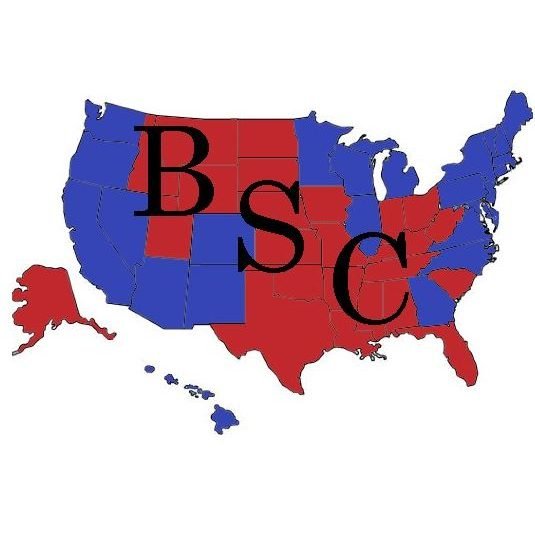Wokeness’ New Frontier: ‘Cannabis Equity’… And Yes, It’s a Thing
For those of us who had frequently indulged in consuming marijuana at some point in our pasts, hearing the term ‘cannabis equity’ could have a variety of meanings. Perhaps we indulged in pot-smoking when we were younger; before growing up and realizing that the television ad with the frying pan and egg warning us “This is your brain on drugs” was spot-on. If you fall into this category, ‘cannabis equity’ could have multiple connotations.
For some of us, ‘cannabis equity’ may have meant skipping someone’s turn as you passed around a joint, remembering that he held onto it just a little too long during the last rotation. For others, the term ‘cannabis equity’ could’ve meant fair pricing and product quality from various suppliers, which always seemed to be problematic. And ‘cannabis equity’ – or ‘inequity’ as may be the case – may conjure memories of the peculiarly irregular effects it had on us. After a few bong hits, some friends seemed to get giddy, others became goofy and paranoid, while still others simply became tired and fell asleep.
But in 2021 America, we’re seeing a predictable alliance unfold between wokeness and cannabis, and an equally predictable incoherent message surrounding this newfangled term as a result. The partnership is predictable because, like the woke, stoned people tend to struggle with reality (“My hamster is telepathic, bro”), and memory (“Hey man, where did you put the potato chips”), and of course reason (“Bernie Sanders can turn this country around dude; totally”). So let’s examine a few of the more disjointed (pun intended) ideas swirling around so-called ‘cannabis equity.’
Unsurprisingly, the State of California seems to have the most fragmented concept of what ‘cannabis equity’ means. In 2018, the oxymoronically named California Bureau of Cannabis Control was given marching orders via the California Cannabis Equity Act. The primary goal of the new law was to “focus on the inclusion and support of individuals in California’s legal cannabis marketplace who are from communities negatively or disproportionately impacted by cannabis criminalization.” In other words, their objective was to ensure new businesses sprouting up within the legalized-pot industry were appropriately owned by minorities.
Not to be outdone, a group named the California Cannabis Equity Alliance (CCEA) seems to have a different agenda, with their focus being not on the make-up of the industry itself but on the usage of the tax revenues resulting from it. They want those tax dollars to be used for programs they like. According to one of the leaders comprising the CCEA, “California made some progress in reinvesting cannabis tax revenue to support youth programs and address severe trauma, but the state continues to ignore the business development problems created by its legacy of racialized marijuana policy enforcement.” Loosely translated, this statement can be interpreted as follows: “Before you went and decided to legalize weed, which is still illegal at a federal level, more minorities were caught dealing the drug than white people, therefore you need to start spending those tax dollars on programs we support.”
Cannabis equity confusion isn’t limited to merely California, however, it seems to have spread across the country. In Connecticut where recreational marijuana is not yet legalized, a bill currently being considered in the event legalization occurs would follow the CCEA’s lead and create a “social equity council” and a “Cannabis Equity and Innovation Account,” which would provide “workforce development programs and offer grants with cash from potential cannabis excise tax revenue.” There are many other states looking to take a similar approach, including New York, New Jersey, and Massachusetts. But Rhode Island may have the most bizarre plan.
Like Connecticut, recreational marijuana in Rhode Island is still illegal, but legalization is being considered. If passed, a bill in the Ocean State “would create a ‘social equity assistance fund’ to provide no-interest loans to business owners affected by past cannabis prohibition laws.” Business owners affected by past cannabis prohibition laws? And whom might that be? Former drug dealers, perhaps?
The entire concept of ‘cannabis equity’ has nothing to do with cannabis. And despite the language being used by the leftist woke within the debate, it’s not about some sort of perceived historic racial injustice either. It’s about power, and it’s about furthering the left’s agenda.
The same people clamoring for the legalization of marijuana, claiming that legal pot is a good thing for minority communities and fussing about how the new tax revenues are going to be spent before legalization even happens, are ignoring clear evidence that it’s not a good thing at all. In fact, legalizing pot is a really bad idea.
According the National Instituted of Health (remember, we need to follow the Science everyone), marijuana is indeed a gateway drug that leads to the use of heavier, more destructive narcotics. If these charlatans selling ‘cannabis equity’ truly cared about minority communities, they wouldn’t be lobbying for legalized weed. They would recognize that recreational marijuana use is in fact drug abuse and is no better than teenage drinking when it comes to the long-term effects of the drug.
The mindset of cannabis equity conmen is this: Let’s legalize pot because minorities are disproportionately affected by the enforcement of prohibition laws. Then, once you’ve got that extra revenue coming in Governor, you had better make damned sure it isn’t going to white folks. Forget about the negative impact that legalized weed will have on all communities, including minority communities, legalize the stuff and spend the money on our socialist agenda programs. Leftism at its worst: ‘cannabis equity.’
Photo by Victor Hamberlin at Flickr.
Content syndicated from TheBlueStateConservative.com with permission.





